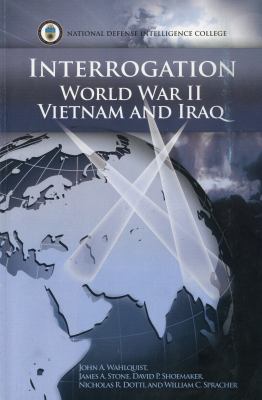
Book
|
Interrogation : World War II, Vietnam, and Iraq
-- Interrogation :
Copies
4 Total copies, 4 Copies are in,
0 Copies are out.
Title
Interrogation : World War II, Vietnam, and Iraq -- Interrogation :
Authors
Subjects
Language
English
Published
Washington, DC : National Defense Intelligence College, [2008]
Publication Desc
viii, 253 pages : illustrations, maps (some color.) ; 23 cm.
ISBN
9781932946239
LCCN
2008933262









